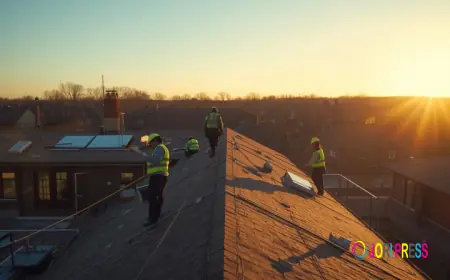Wisdom Teeth Removal in Raleigh, NC: What to Expect and How to Prepare
Wisdom teeth are the last molars to develop, appearing in late teens and early twenties. When these third molars become trapped, or impacted, they can cause pain, infections and damage to other teeth.

Wisdom teeth are the last molars to develop, appearing in late teens and early twenties. When these third molars become trapped, or impacted, they can cause pain, infections and damage to other teeth.
Dental insurance often covers the cost of wisdom tooth removal, but those without coverage may face higher out-of-pocket expenses. Understanding influencing factors, estimating costs without insurance, and exploring example payment plans can help patients manage these expenses.
Impacted Teeth
While some people have sufficient jaw space for their wisdom teeth removal Raleigh NC to grow without any issues, many others experience tooth impaction. Tooth impaction involves a tooth failing to break through the gums due to lack of space, eruption at an improper angle, or obstruction. Unless treated, impacted teeth can cause serious oral health problems such as infection, inflammation, and decay.
Symptoms of an impacted tooth include pain, swelling in the gum tissue, red and bleeding gums, bad breath, or an unpleasant taste in your mouth. Additionally, impacted teeth can exert pressure on surrounding teeth, crowding them and disrupt the natural alignment of your smile and bite.
Dental professionals recommend having your impacted wisdom teeth removed as early as possible to prevent future complications. An oral and maxillofacial surgeon can perform this procedure. They are highly trained and specialize in surgical procedures, including the removal of wisdom teeth. Their additional training and expertise makes them the best candidates to treat this common dental issue.
Diagnosis
Our dentists will take panoramic or digital x-rays of your mouth to evaluate the position of your wisdom teeth. This will help determine whether your wisdom teeth are impacted and reveal any potential problems that may be arising. Early evaluation and treatment will enable you to avoid serious complications down the road.
Your dentist will provide you with detailed aftercare instructions to manage pain, prevent infection and promote healing. It is important to follow these instructions carefully to minimize discomfort.
Vigorous mouth rinsing or touching the surgical site should be avoided to avoid dislodging the blood clot. Stick with a soft or liquid diet to begin with, then gradually reintroduce solid foods as the area heals.
It is also important to avoid smoking, as it can delay healing and increase the risk of complications. It is also advisable to avoid alcohol, as it can weaken the anesthesia and lead to painful symptoms. If you have any questions or concerns, please call our office for advice.
Sedation Options
Wisdom teeth are the final permanent molars to appear in the back of your mouth. They often develop improperly, erupting into the mouth without proper alignment or becoming trapped beneath the gum and bone (called impaction). This may cause problems such as overcrowding, tooth decay, infection, and jaw pain.
Many patients choose to be sedated during the procedure, which can help ease your anxiety and allow you to relax throughout the surgery. The type of anesthesia that is best for you will be discussed during your consultation.
We use a local anesthetic, nitrous oxide, or intravenous (IV) sedation to ensure you are comfortable and have a stress-free experience during your wisdom tooth removal. We recommend that you have a parent or responsible adult escort you to and from the office and remain with you until you are ready to return home. You will receive detailed aftercare instructions to minimize recovery time and promote healing. The majority of our patients heal quickly and experience no long-term complications from the procedure.
Procedure
When impacted wisdom teeth removal Raleigh NC are allowed to remain in the mouth, they can cause a variety of problems. They may contribute to crowding of other teeth, deterioration of the jaw bone, sinus infections, inflamed gums, and tooth decay. They can also cause cysts or tumors, which are fluid-filled “balloons” that destroy adjacent bone and sometimes teeth.
A dentist or oral surgeon will determine the most appropriate extraction method for each case, which may involve a simple procedure or more involved surgery. Depending on your comfort level, intravenous (IV) or oral sedation can be used to ensure you do not feel any pain during the procedure.
After the procedure, it is important to rest for the first few days to promote healing. It is normal to experience soreness and some bleeding in the affected area. The dentist or oral surgeon will provide you with enough gauze to bite down on to control the bleeding and will instruct you to change the gauze as needed. You can also use ice packs to reduce swelling and take any prescribed medications as instructed.
What's Your Reaction?
 Like
0
Like
0
 Dislike
0
Dislike
0
 Love
0
Love
0
 Funny
0
Funny
0
 Angry
0
Angry
0
 Sad
0
Sad
0
 Wow
0
Wow
0
















































